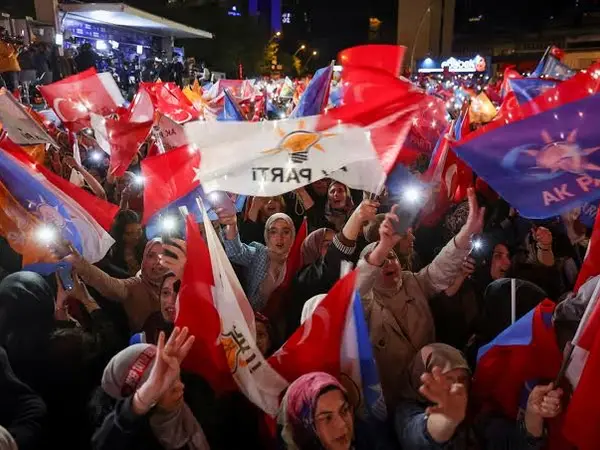Amid popular demands for democracy and free elections, Iranians have exhibited an unusual degree of interest in Turkish elections for the first time.
Many Iranians didn't sleep all night after the polls closed in Turkey on May 14 and keenly followed election results on Iranian and international media, partly because of what an Iranian Twitter user noted as a similarity between the Turkish elections and the disputed Iranian presidential election in 2009.
International relations commentator Ehsan Movahedian wrote about the similarity: "The bipolar situation in Turkey is reminiscent of the 2009 election and its bitter consequences. Erdogan's provocative speeches reminds one of Iran's former President Mahmoud Ahmadinejad. The United States and Israel are lurking to take advantage of the situation and Iran is worried."
Just hours after polls closed in 2009, the regime announced that President Mahmoud Ahmadinejad had wone the election in the first round. Millions of voters and the losing candidate Mir-Hossein Mousavi disputed the hasty announcement and months of protests ensued. Thousands were arrested, dozens killed, and the mechanism of repression received a huge boost.
During the past few days, military forces in northeast Iran, which borders Kurdish populated eastern Turkey were put on a state of alert to control possible demonstrations following a likely victory by the opposition coalition leader Kamal Qelichdaruglu [Kilicdaroglu], social media reports said.
When the results were finally declared Monday morning, May 15, and incumbent President Recep Tayyip Erdogan and Qelicichdaruglu went through to take part in the run-off election in two weeks' time, Iranians began to ask themselves on social media where did all the interest in Turkish election come from.
The Iranian Foreign Ministry congratulated Erdogan and called the result "a victory for democracy." That was a very meaningful message from a country where a similar election in 2009 led to serious political strife with lasting deep wounds that seriously dented the legitimacy of the Islamic Republic.
The Twitter accounts of Iranian newspapers constantly updated the results throughout the night as they came in from Turkish media.
Iranian journalist Sadegh Alhosseini called the election a miracle, and called on Iranians to compare Erdogan's legacy with political dynamics in Iran and Saudi Arabia. Another Iranian journalist, Mehdi Rahbar, wrote: "This was the toughest challenge Erdogan faced during the past 20 years. And it is going tougher for him in the run-up election although Qelichdaroglu does not have a smooth path ahead of him either."
Yet another Iranian journalist, Mohammad Motlagh wrote Sunday night: "Iran is the biggest winner of Turkey's election. If Erdogan wins, that would be the beginning of the decline of NATO and probably conflicts between Turkey and Greece; and if Qelichdaroglu wins, it means harnessing the war in Caucasia [Armenia-Azerbaijan], reduction of tensions in Syria and Iraq and more interest in Russia to get closer to Iran."
Iranian academic Fatemeh Shams wrote: "Erdogan's defeat makes me happy as Iran's defeat will do. Do not underestimate Erdogan and his Mafia's corruption and radicalism. If the opposition wins the election in Turkey many dynamics will change in the region."
Iranians saw the Turkish vote as democracy in action. As Iranian journalist Amir Hossein Mossala Pointed out, "No matter which candidate wins the election, the people of Turkey are its winners. They do not have leaders with absolute powers for life. There is no engineered election and arbitrary vetting of candidates in Turkey."
As an Iranian social media user observed, "Both sides have claimed victory, but [unlike Iran in 2009] no one attacked Qelichdaroglu's campaign or arrested its staff. SMS service has not been cut off, observers have not been expelled from polling stations, and Erdogan's supporters did not take to the streets with clubs in their hands. Turkey did not welcome darkness."
